Reading readiness Normal Worksheets for Ages 3-6
6 filtered results
-
From - To
Prepare your child for a successful reading journey with our Reading Readiness Normal Worksheets for Ages 3-6! Designed for early learners, these engaging worksheets foster essential literacy skills through fun activities. Children will explore letters, sounds, and comprehension while enhancing their fine motor skills and handwriting. Each worksheet is tailored to capture young minds’ interest, making learning enjoyable. Perfect for homeschooling or supplementary practice, our resources ensure that little readers are well-equipped to tackle future reading challenges. Help your child build a strong foundation in reading and instill a lifelong love for books with our thoughtfully crafted materials!
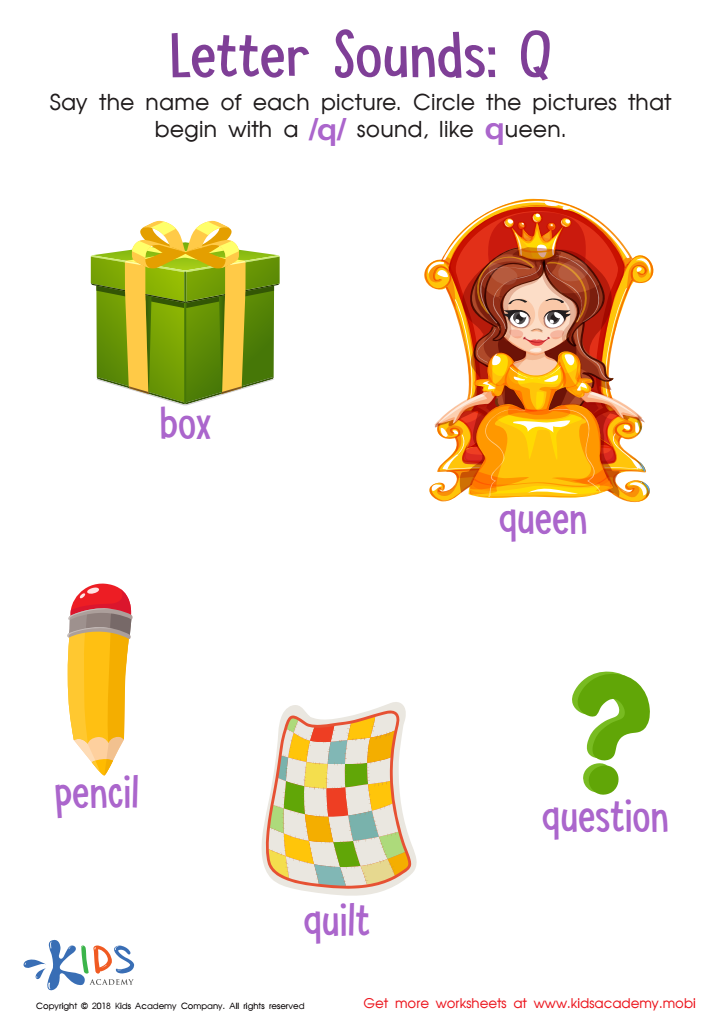

Letter Q Sounds Worksheet
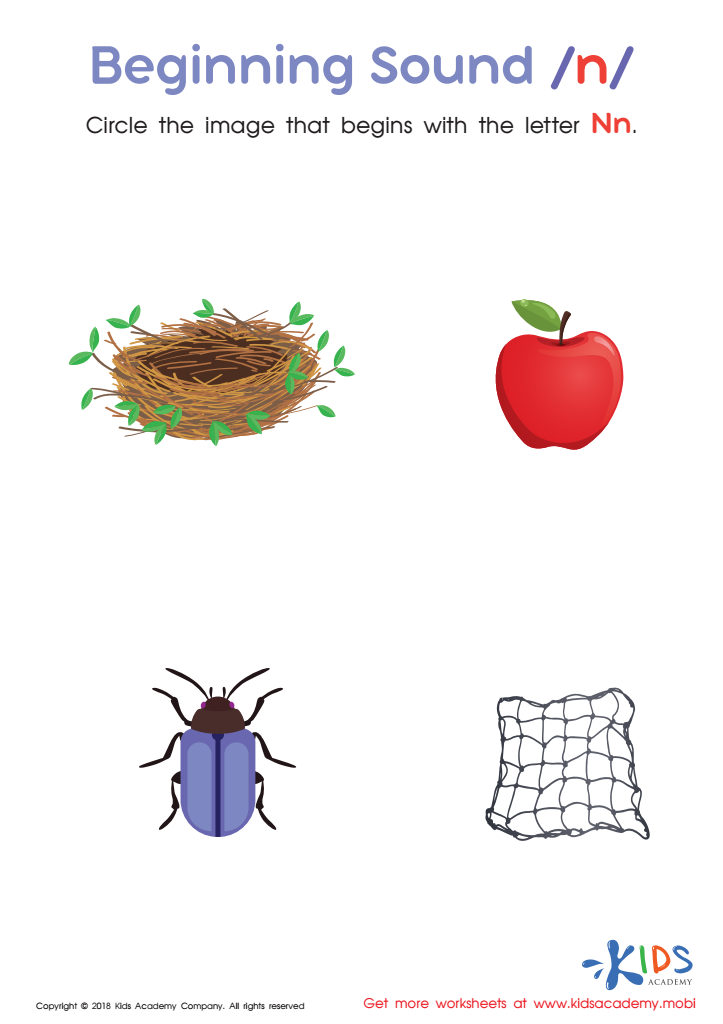

Beginning Sound «n» Worksheet
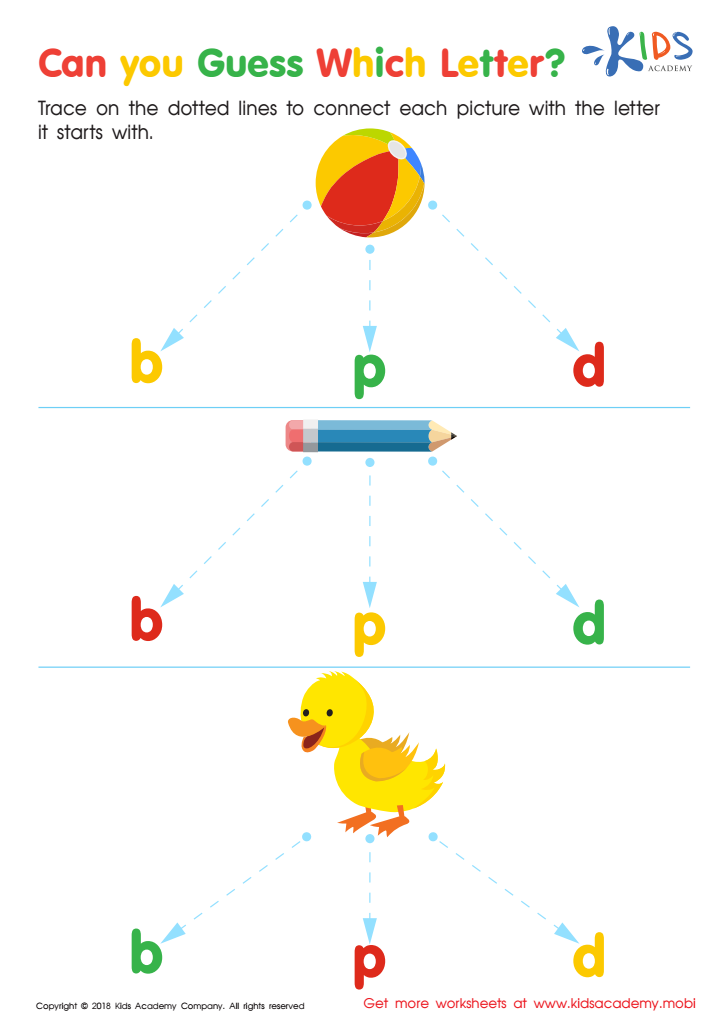

Can you Guess Which Letter? Worksheet


Phonological Awareness: Assessment 1 Worksheet
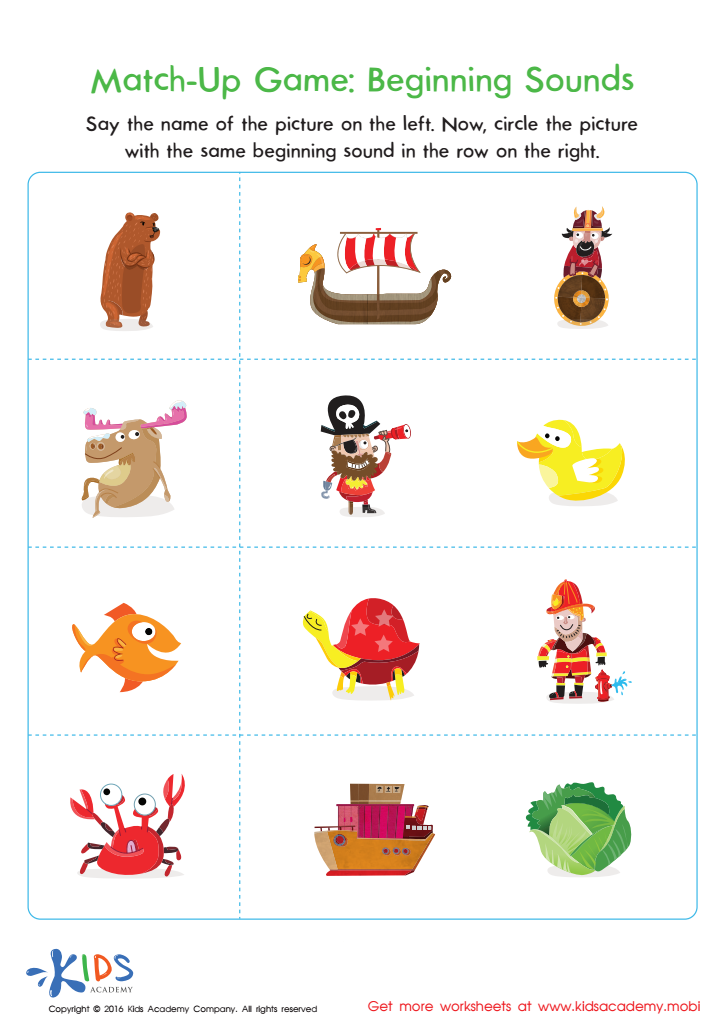

Match–Up Game: Beginning Sounds Worksheet
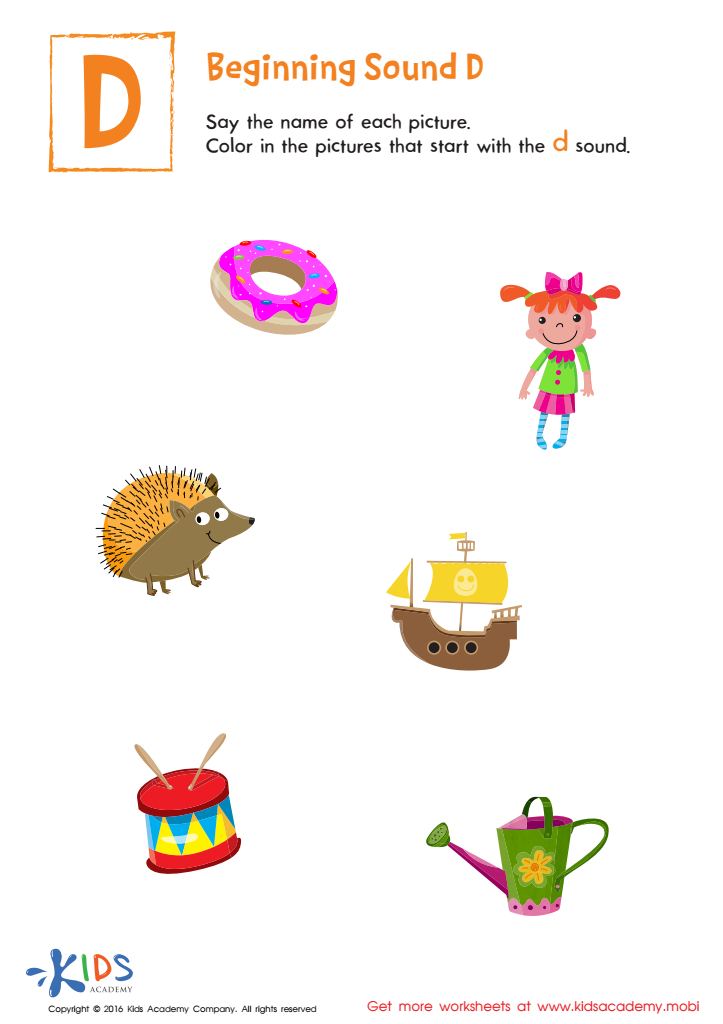

Beginning Sound D Worksheet
Reading readiness is a crucial developmental milestone for children aged 3-6, as it lays the foundation for literacy skills that are essential for academic success. Parents and teachers should care about reading readiness because it directly influences a child's ability to engage with and comprehend written language. During these formative years, children develop phonemic awareness, vocabulary, and comprehension skills, which are vital for later reading proficiency.
Additionally, early literacy experiences foster a love for reading and encourage curiosity about the world. When children are exposed to varied reading materials and encouraged to participate in storytelling, they build critical listening and speaking skills that enhance their overall communication abilities.
Moreover, reading readiness contributes to children’s emotional and social development. It can boost their confidence in a school environment where they learn to express thoughts and ideas. By ensuring that children are reading-ready, we transform their educational journey, preparing them for more advanced learning challenges ahead.
Supporting reading readiness can also help identify any potential learning difficulties early on, allowing for timely interventions. In summary, investing in the reading readiness of young children enriches their life opportunities and equips them for a lifetime of learning.

 Assign to My Students
Assign to My Students



















